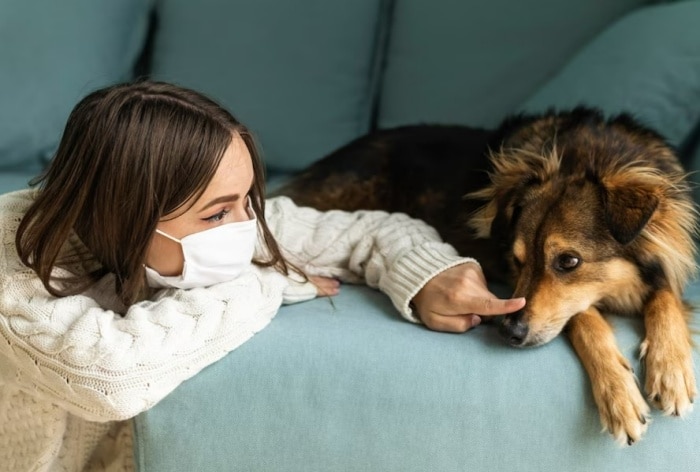In UK, three people have been reported to have contracted this incurable rare bacterial infection- brucella canis- that spreads from dogs to humans.

Every day people wake up to stories about different infections, the rise of some new rare disease or a new outbreak or variants of some existing variant. While it is concerning, it is not surprising anymore. after several flesh-eating bacteria coming to light, another rare bacterial infection- brucella Canis- is making the headlines. It is an incurable disease found in dogs but now is spreading to humans too.
Three people in the United Kingdom have contracted the disease as per reports. The disease can spread via contact with infected canines, the fluid etc. However, in humans, the effect is so far reportedly have been mild. Wendi Shepherd, Head of Emerging Infections and Zoonoses at UKHSA, said We have seen a small number of cases of Brucella canis in people in the UK this year. However, the risk to the general public in the UK is very low and the risk to people who have had close contact with an infected dog is low.
“From the small number of cases of the infection that have been reported in humans worldwide, the infection is usually mild, but people who have weakened immune systems, are pregnant, or are young children may be more likely to experience more serious infection.”
BRUCELLA CANIS: SIGNS, SYMPTOMS AND PREVENTION
- Fever
- Persisting headache
- Constant headache
- Myalgia or pain in the muscles
- Malaise
- Unexplained weight loss
- Meningitis
- Septicaemia
- Arthritis
Although not always life-threatening in dogs the disease is incurable so the only way to control transmission is euthanasia. Signs of the disease in dogs include lethargy, premature ageing and back pain but some dogs appear asymptomatic. According to a report by the Independent, symptoms of the infection can take years to present themselves and may return over several years.
Prevention
- Avoid using unpasteurized dairy products
- Ensure all meat is thoroughly cooked and is not raw
- Wear gloves while dealing with canines
- Ensure proper and updated vaccination of your dogs
In terms of treatment, so far, there is no guaranteed treatment for the disease. In dogs it is incurable and to stop the spread often euthanasia is the only option. While cases of human infection are increasing in UK, there still needs to be more data to determine a proper course of action, testing and treatment for humans.
